Filter by
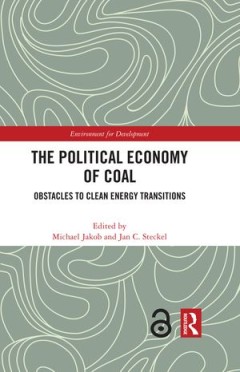
The Political Economy of Coal Obstacles to Clean Energy Transitions
This volume provides an overview of the political economy of coal in diverse country contexts.Coal is the largest source of greenhouse gas emissions globally, accounting for about 40 percent of energy-related CO2 emissions. Continued construction of coal-fired power plants could make the climate targets of the Paris Agreement infeasible to achieve. In spite of sharply declining costs for renewa…
- Edition
- -
- ISBN/ISSN
- 9781000551594, 1000551598
- Collation
- -
- Series Title
- -
- Call Number
- -
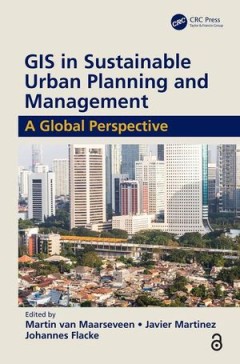
GIS in Sustainable Urban Planning and Management A Global Perspective
GIS is used today to better understand and solve urban problems. GIS in Sustainable Urban Planning and Management: A Global Perspective, explores and illustrates the capacity that geo-information and GIS have to inform practitioners and other participants in the processes of the planning and management of urban regions. The first part of the book addresses the concept of sustainable urban devel…
- Edition
- -
- ISBN/ISSN
- 9781315146638
- Collation
- -
- Series Title
- -
- Call Number
- -

GIS in Sustainable Urban Planning and Management A Global Perspective
GIS is used today to better understand and solve urban problems. GIS in Sustainable Urban Planning and Management: A Global Perspective, explores and illustrates the capacity that geo-information and GIS have to inform practitioners and other participants in the processes of the planning and management of urban regions. The first part of the book addresses the concept of sustainable urban devel…
- Edition
- -
- ISBN/ISSN
- 9781315146638
- Collation
- -
- Series Title
- -
- Call Number
- -
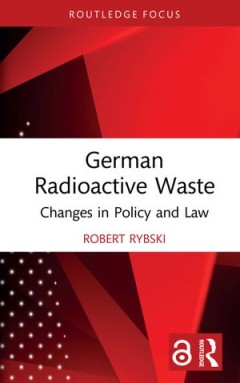
German Radioactive Waste Changes in Policy and Law
This book presents the universal issue of radioactive waste management from the perspective of the German legal system, analysing how lawmakers have responded to the problem of nuclear waste over the course of the last seventy years. In this book, Robert Rybski unwraps and explains the perplexing legal and social issues related to radioactive waste. He takes readers through the entire ‘life-c…
- Edition
- -
- ISBN/ISSN
- 1000567591, 9781000567595
- Collation
- -
- Series Title
- -
- Call Number
- -
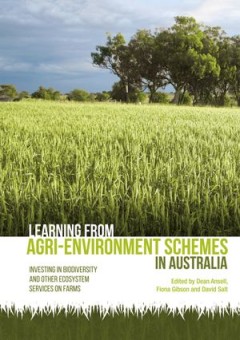
Learning from agri-environment schemes in Australia Investing in biodiversit…
Learning from agri-environment schemes in Australia is a book about the birds and the beef — more specifically it is about the billions of dollars that governments pay farmers around the world each year to protect and restore biodiversity. After more than two decades of these schemes in Australia, what have we learnt? Are we getting the most out of these investments, and how should we do thin…
- Edition
- -
- ISBN/ISSN
- 9781760460150
- Collation
- -
- Series Title
- -
- Call Number
- -
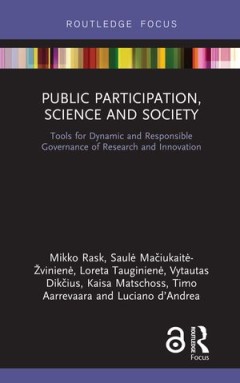
Public Participation, Science and Society Tools for Dynamic and Responsible …
The field of public participation is developing fast, with phenomena such as citizen science and crowdsourcing extending the resource base of research, stimulating innovation and making science more accessible to the general population.Promoting public participation means giving more weight to citizens and civil society actors in the definition of research needs and in the implementation of res…
- Edition
- -
- ISBN/ISSN
- 9781351272957, 1351272950
- Collation
- -
- Series Title
- -
- Call Number
- -
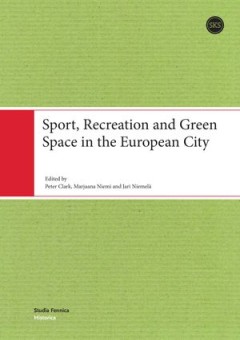
Sport, Recreation and Green Space in the European City
Green space has become a major issue in European cities in recent years as a result of enhanced environmental awareness, urban marketing, planning policy and growing population densities. Up to now, however, the subject of sports areas and grounds has attracted little research, despite the fact that since the First World War such public and private areas – from football pitches and running tr…
- Edition
- -
- ISBN/ISSN
- 9789522227911
- Collation
- -
- Series Title
- -
- Call Number
- -

Canadian Television Today
What’s on TV? Canadian Television Today explores the current challenges and issues facing the English-language television industry in Canada. Television in Canada has long been one of the principal conduits of national identity. But has it kept pace with the rapidly changing landscape of Canadian culture? After presenting an overview of the main issues and debates surrounding the Canadian sma…
- Edition
- -
- ISBN/ISSN
- 9781552386743
- Collation
- -
- Series Title
- -
- Call Number
- 791.45 BEA c
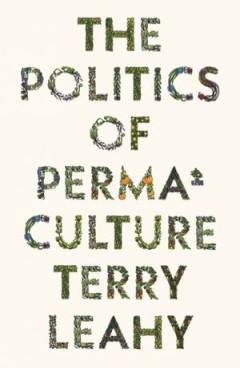
The Politics of Permaculture
Permaculture is an environmental movement that makes us reevaluate what it means to be sustainable. Through innovative agriculture and settlement design, the movement creates new communities that are harmonious with nature. It has grown from humble origins on a farm in 1970s Australia and flourished into a worldwide movement that confronts industrial capitalism. The Politics of Permaculture is …
- Edition
- -
- ISBN/ISSN
- 9780745342801
- Collation
- -
- Series Title
- -
- Call Number
- -
 Computer Science, Information & General Works
Computer Science, Information & General Works  Philosophy & Psychology
Philosophy & Psychology  Religion
Religion  Social Sciences
Social Sciences  Language
Language  Pure Science
Pure Science  Applied Sciences
Applied Sciences  Art & Recreation
Art & Recreation  Literature
Literature  History & Geography
History & Geography